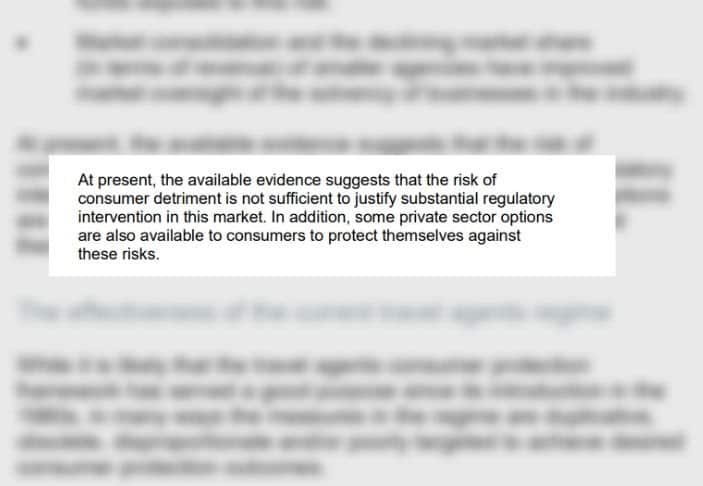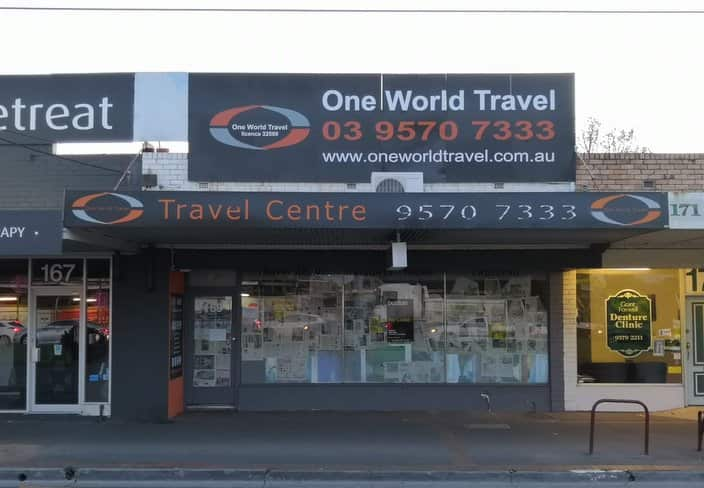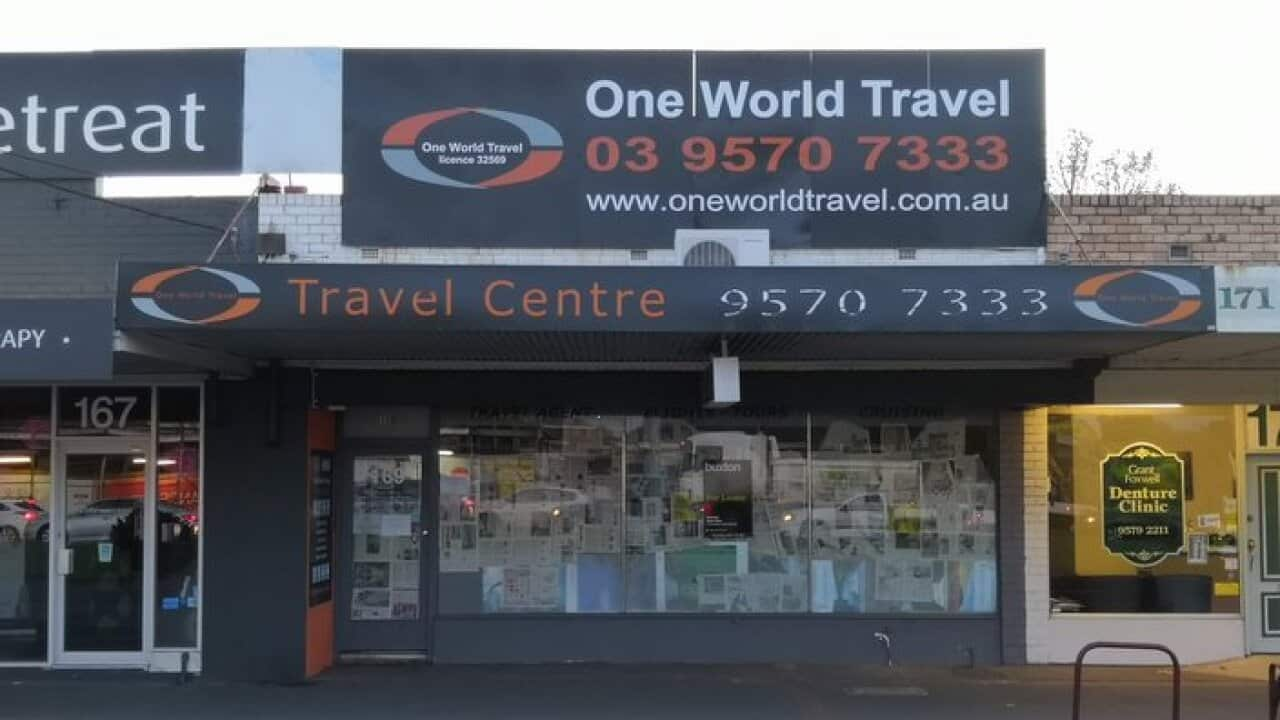In the span of one week in early June, two travel agencies primarily serving ethnic communities shut their doors. One World Travel was well-known for 15 years among its Russian customer base, while My Next Trip served the Indian community until its collapse.
Speaking with jilted clients, SBS Russian and SBS Punjabi have found similar factors led customers to use those agencies and similar fallout from their collapse, when people were left thousands of dollars out-of-pocket, or even stranded on the other side of the planet.
While almost 40 per cent of Australians use travel agents to book voyages, it’s common in migrant communities to rely on agency services provided by people who speak your language. Sharing the same cultural background and even the offer of a special community discount can lead customers to take up the services of these smaller agencies.
In 2017 and 2018 SBS Malayam and SBS Arabic24 covered similar cases within Indian and Lebanese communities, when customers suffered financial losses and made similar complaints.
Stranded abroad
After suffering overseas strandings and massive financial losses, these customers tell SBS that they have little recourse for the return of their funds, or compensation from what they say are dodgy operators.
“We felt we were totally unprotected," says Anna Bordenjuk, 63, who sought help and compensation after being stranded in Europe on a trip organised by One World Travel. "Living in such a stable and socially responsible country, like Australia, we saw that no one can help us.”
Bordenjuk was part of the group of 20 older travelers who were stranded in Slovenia with their return plane tickets canceled, accommodation and many other services unpaid. She had spent thousands traveling to Slovenia, in the hope of being able to finally stop grieving her late husband, but says the voyage resulted in significant psychological and financial stress.
With some customers losing up to $20,000 dollars to One World Travel they say they feel not just betrayed by a trusted travel agent, but completely unprotected by consumer law in Australia.

Anna Bordenjuk travelled to Europe with the group of other 20 seniors when they found our their accommodation wasn't paid and returned tickets cancelled. Source: Supplied
Left thousands out-of-pocket
The Bhullar family is one of three Indian Australian families who lost thousands of dollars in airfares after Melbourne-based travel company My Next Trip ceased its operations.
Mr Bhullar, who says he stands to lose at least $4,500 after the company ceased operation, closing its website and social media accounts, wants to see someone to take responsibility for what he claims to be a total failure of the system.
“I wonder who should be held accountable," he says. "The travel company, the airlines, or the governmental organisations who have failed to put a check on this whole system.
“It is very sad to see this happen. It has become a lot easier for the companies to siphon money and then declare bankruptcy and putting their customer at this financial vulnerability.”

Brisbane-based Bhullar family spent over $4000 to purchase air tickets for their travel from Brisbane to Amritsar in India, through My Next Trip Source: Supplied
Who is held to account?
More than 60 people, all victims of One World Travel's dealings, approached lawyer Ilya Furman to take a compensation case to Victoria Consumer Affairs, who has, in turn, asked that the assets of One World Travel's CEO Elena May be frozen.
“There are potentially civil and criminal charges," Furman says. "That’s the reason why the Victoria Police, ASIC and Victoria Consumer Affairs are involved. And this [Elena May's] house is the last chance to return the money if the case is successful.”
While Mr Furman is optimistic about the outcome of the One World Travel cases, he is concerned by the lack of funds to compensate the victims, and draws on the example of his own industry to illustrate the importance of a safety net.
“If a lawyer steals a client's money, there is this safety net there. There is an indemnity that works for all lawyers so that, either through an insurer or through the industry, the particular client should able to recover those losses... That doesn’t appear to be here [in the travel industry], that seems unusual.”
Almost 20 years ago a trust deposit operated in the travel industry to compensate travelers, and the more recent government-legislated Travel Compensation Fund (TCF) existed until 2014, when wider industry deregulation wound it back.
The decision to dissolve the TCF was based on a review of Consumer protection, delivered by PwC for the Department of the Treasury on behalf of the Standing Committee of Officials of Consumer Affairs. It stated that “the economic cost of the scheme is in the order of nine times greater than the average value of claims paid”. Since then travel agents have not been required to be accredited by the Australian Travel Agent Federation (AFTA), the industry's peak body, and customers are left to their own devices when a travel agency collapses.
Since then travel agents have not been required to be accredited by the Australian Travel Agent Federation (AFTA), the industry's peak body, and customers are left to their own devices when a travel agency collapses.

Abstract from the review delivered by PwC for the Department of the Treasury on behalf of the Standing Committee of Officials of Consumer Affairs Source: PwC review
However, Jayson Westbury, CEO of AFTA, defends the dissolution of the TCF.
“In the last four years on balance to the previous 27 years there has been far less instances of businesses collapsing under the new regime.”
Westbury is adamant that the removal of safety nets such as the TCF is beneficial for the industry and taxpayers in general.
“What the concept of the safety net does it says that the government needs to prop the industry up," he says. "The question is, what are the failings of the industry that need to be rectified such that the taxpayer doesn’t have to be footing the bill - and all the industry and consumers as a collective don’t have to be footing the bill for failures of the business operations.”
Accreditation and reputation
In 2016 there were 6,100 travel agencies and tour operators in Australia, with 5100 of them being non-employing and micro businesses with up to 4 people.
1400 travel businesses have AFTA-approved accreditation, known as ATAS, which the body's website describes as “a benchmark of quality for the travel industry”.
While My Next Trip was never an AFTA member, One World Travel had its accreditation canceled in March 2019, says AFTA website.
Mr Westbury agrees that the industry is aiming to weed out "bad people", but in the meantime, consumers should make sure to protect themselves with insurance and purchases made via credit card.
“The best form of protection a consumer can take when they are booking travel is to pay with a credit card. This is the cheapest form of protection with 100 per cent confidence that their bookings are safe”.
Cash or credit?
According to a report on Australian travel trends by consumer advocacy group CHOICE, 17 per cent of customers purchasing through travel agents still pay in cash.
As SBS Russian found out, One World Travel encouraged customers to pay by cash.
An employee of One World Travel told SBS Russian that a few days before it ceased operation, the company's CEO Elena May called regular customers, mostly elderly couples, and offered great deals for cash which needed to be paid for quickly to secure.
Shortly after that she stopped answering calls and disappeared. While a notice posted on One World Travel's shopfront says the company has "entered voluntary administration", ASIC still lists the company as a registered business.
Another client of One World Travel, Oksana Gitin, says she paid in cash for a family trip to USA, and was unaware of the protections a credit card may have offered.
"I have never used credit cards and I didn’t know they were sort of ‘insurance’ against fraud transactions," she says. "Since I had the confirmation in hand, it didn’t even cross my mind that it was all fake." Unlike One World Travel, the Indian-focussed agency My Next Trip did go into liquidation.
Unlike One World Travel, the Indian-focussed agency My Next Trip did go into liquidation.

One World Travel Source: SBS Russian
Adelaide-based Inderdeep Singh Aujla, who had a family trip booked with the agency, is now looking for ways to get his money back.
“We lost about $2,500 that we spent on our airfare to travel to India,” says Mr Singh. “We were shocked when we got to know that our tickets were canceled by the airlines due to the fact that the travel company didn’t pay them for the booking.”
The Singh family was only made aware of this cancellation when they contacted Singapore Airlines to make a change in their booking.

Inderdeep Singh Aujla spent $2500 for booking air tickets with My Next Trip Source: Supplied
Can banks cover consumer losses?
Mr Singh is hopeful he can claim his money back through his bank by disputing the charge.
“I know people can claim it back through their banks, a reason why I put my request as a ‘disputed transaction – goods not delivered’ category through my bank.”
In early January, SBS Punjabi reported that at least four Indian Australian families lost thousands of dollars spent on airfares with Bestjet, a web-based travel company which collapsed in December, leaving thousands affected.
Perth-based Jarnail Singh Bhaur has since received over $8,000 that he spent on airfares with Bestjet from his bank after disputing the charge.
“It is not a guarantee but at least you can fight back to claim your money back through your financial institutions,” said Mr Bhaur.
AFTA's Jayson Westbury says that 95 per cent of Bestjet customers were able to get their money back, stressing the importance of credit card payments, adamant that re-installing a compensation fund would not be in the interest of consumers or industry.
“When you think about the 10-and-a-half million Australians that go overseas every year and you calibrate that down to the pocket of unfortunate situations, it doesn't present the economy with the need to over-regulate.”

The Bhaur family’s plans to attend a marriage in India were affected after the air tickets they purchased from Bestjet were cancelled. Source: Supplied
What can consumers do if a company has collapsed or liquidated?
A spokesperson from the Australian Competition and Consumer Commission (ACCC) says that customers left out-of-pocket might only be paid after a liquidating business has cleared its debts to creditors such as employees and shareholders.
The ACCC advises that consumers should contact their bank to seek a chargeback on the transaction as soon as possible.
“Consumers who paid for a product or service with a credit card and do not receive the product or service because the company has gone into external administration may be able to request a chargeback on the transaction from their bank or financial institution.”
Tips to protect against ‘dodgy’ travel agents or companies
Under Australian Consumer Law, travel agents are prohibited from making false or misleading representations like any other business, but the truth is that bad actors can enter the picture.
The ACCC's spokeperson says consumers should always make sure that they are dealing with a genuine business and they should do their own research before making any payments.
They should seek advice on:
- Whether the company is registered, if they have a licence, or if they are a member of an industry association.
- If checking online, look at multiple websites. Don’t believe everything written online.
- Check that the business' website includes its contact details, such as a phone number and email address.
- Carefully read terms and conditions, so you know your options if you have to change or cancel a booking.
- Take out travel insurance, but remember that it doesn’t insure them from insolvency
Consumers can contact the ACCC for information about their rights and obligations, and possible courses of action they might want to take, while state and territory consumer protection agencies provide similar services.
Share







